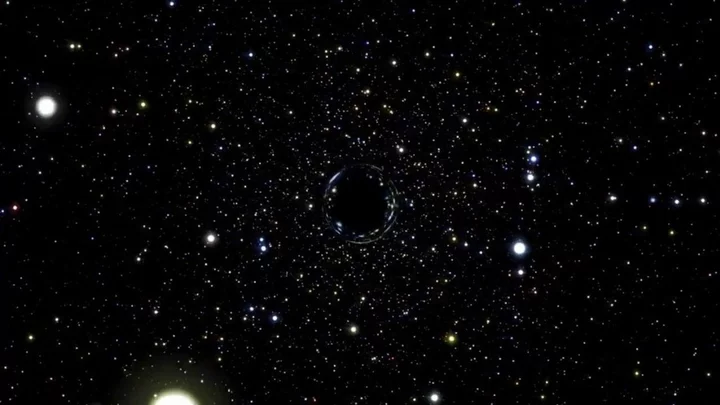It feels like every time black holes are discussed and studied by the scientific community, there are new findings that blow our tiny minds.
It’s been revealed that black holes actually regurgitate or “burp up” the stars that they eat years after the event.
Experts made the discovery by studying tidal disruption events (TDEs). These events take place when stars are close enough to supermassive black holes, to be destroyed by the process of spaghettification.
Studying these moments over a number of years after the black holes seemingly swallowing stars with no trace, the experts found that up to 50 per cent of them "burp up" the remains.
Yvette Cendes is a research associate at the Havard and Smithsonian Center for Astrophysics and head author on the study. Speaking to Live Science, she said: "If you look years later, a very, very large fraction of these black holes that don’t have radio emission at these early times will actually suddenly 'turn on' in radio waves.
"I call it a 'burp' because we’re having some sort of delay where this material is not coming out of the accretion disk until much later than people were anticipating."
The material was re-emitted between two and six years from 10 out of 24 black holes which were studied by Cendes and the team.
It has the potential to change the way the scientific community thinks about black holes.
"There was a second peak, the two black holes re-brightened, and that's completely new and unexpected," Cendes said. "People were thinking that you'd have one outflow, and then it's kind of done. So this observation means these black holes can 'turn on' and then 'turn on' again."
Meanwhile, a low intergalactic grumbling is emanating from deep space, according to scientists – and again, it’s black holes that are providing us with new discoveries.
Astronomers say they detected the first-of-their-kind low frequency ripples, described as a “cosmic bass note” of gravitational waves, which is thought to be caused by supermassive black holes merging across the universe.
Sign up for our free Indy100 weekly newsletter
Have your say in our news democracy. Click the upvote icon at the top of the page to help raise this article through the indy100 rankings

